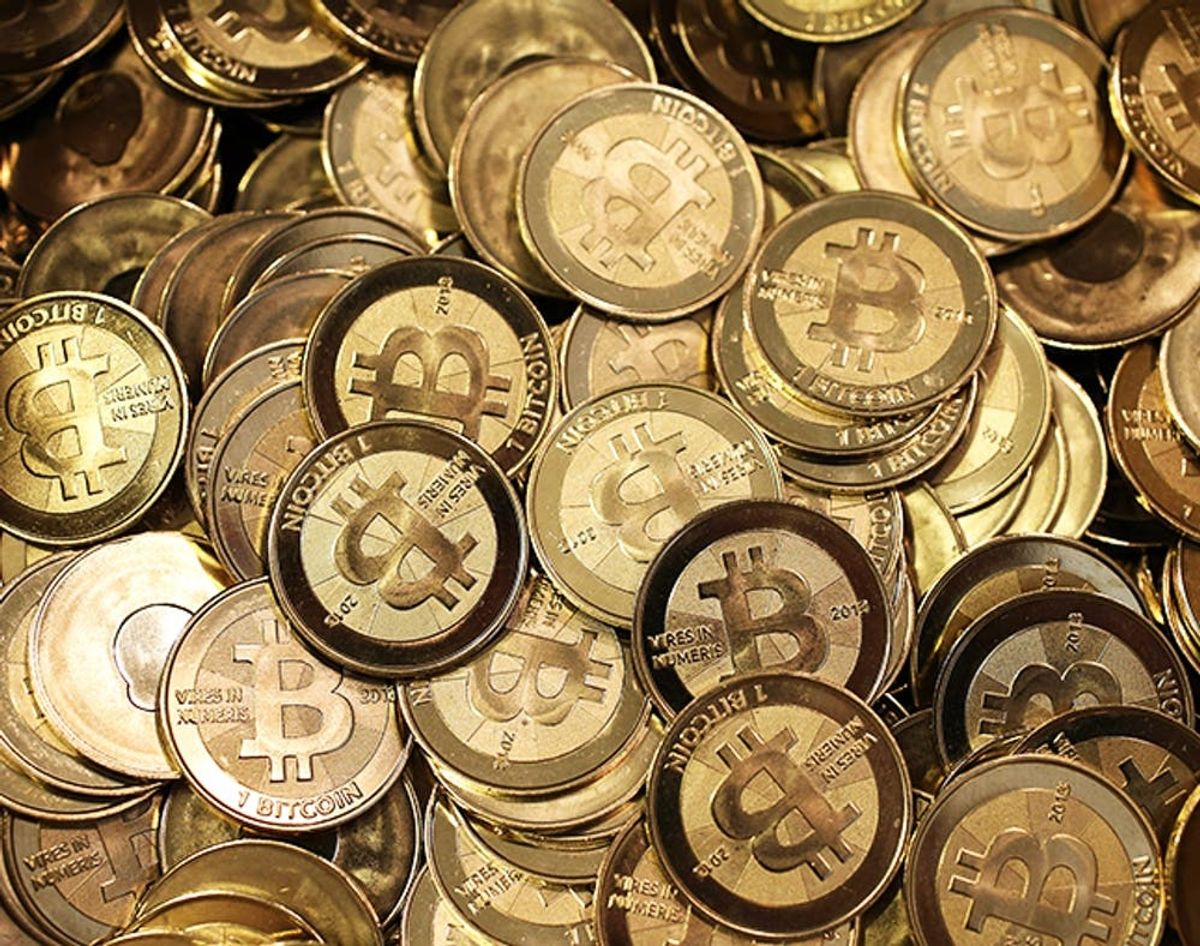It’s all about the bitcoins, baby — at least in 2014 it’s been at least sometimes about the online-only currency as it’s taken the leap from Deep Web to campus cash. If you’ve found yourself Googling, Yahooing or Ask Jeeves-ing “what the heck is bitcoin?” or “wait, is it ‘a bitcoin’?” we have a cheat sheet for you that might answer at least a couple of your burning Qs. Or get you asking even more, because we like that sort of stimulating convo around here.
WTF Are Bitcoins? What You Need to Know About the Online Currency

It’s all about the bitcoins, baby — at least in 2014 it’s been sometimes about the online-only currency as it’s taken the leap from Deep Web to campus cash. If you’ve found yourself Googling, Yahooing or Ask Jeeves-ing “what the heck is bitcoin?” or “wait, is it ‘a bitcoin’?” we have a cheat sheet for you that might answer at least a couple of your burning Qs. Or get you asking even more, because we like that sort of stimulating convo around here.
Are bitcoins money?
Yes, bitcoin is a virtual currency! You can buy things with it. Not all things, a lot of things and way more things than you could as recently as last year.
So… bitcoin is a coin?
Bitcoin, the proper noun, is the payment network and bitcoin (lowercase style) is the unit of digital currency. Don’t let the picture we used here fool you, bitcoins can’t get stuck at the bottom of your purse or between the cushions of your couch.
How does the government feel about bitcoins?
Well, not great. They’re not involved with Bitcoin, which is decentralized and not controlled, created, or regulated by them or any central body. Instead, the currency is controlled by those who have it and use it. You can buy bitcoins on different websites by wiring money to someone else who has bitcoins, and you can sell them the same way. Once you’re flush with the dot com dough, you can stash your bitcoins in an “online wallet” on a secure third-party site.
Wait, isn’t bitcoin bad?
No, it just used to be an underground currency used to buy often bad things off of Silk Road, an illegal online marketplace. But now that the currency is reaching a mainstream audience, it also wants to clean up its rep. Here are a few things that might make Bitcoin seem more normal:
There Are Bitcoin Debit Cards: Xapo is a company that gives you an online vault to store your bitcoins and now they’re offering up a way for you to take your bitcoin wallet offline and purchase things in your day-to-day. Like… coffee, groceries — anything you would normally buy with plastic.
There Are Bitcoin ATMs: If you already have the virtual money, you can visit a bitcoin ATM that lets you use your bitcoin stash to take out cash. There aren’t that many and none in the US yet but a Canadian bitcoin ATM saw 81 transactions in its first day. Not too shabby.
There Are (Well, Could Someday Be) Bitcoin Pricetags: One designer-hacker set out to solve the problem of bitcoins’ changing rates. If the currency becomes as popular as the USD, we could see these pricetags on merchandise displaying a value that changes in real time.
Every MIT Student Gets $100 in Bitcoins: Remember “Campus Cash”? This is different. It does not come from your mom and isn’t only good for the best dorm caf’s pasta bar or sweatshirts with your logo on them. In the hopes of jumpstarting the bitcoin ecosystem, undergraduates at MIT will be given $100 worth of bitcoins this fall in a project led by a student and funded in part by an MIT alum.
You Can Survive on Bitcoins Alone: At least for a week. Forbes staffer Kashmir Hill tried out the experiment last year and couldn’t pay rent or feed herself every day. A year later and it’s a lot easier to survive. And survive well — her bitcoin-funded adventures this time around include Stumptown cold brew coffee at breakfast and a wine tour on the weekend.
Politicians Can Collect Bitcoins: This is not a House of Cards Season 3 subplot, but it might be. The Federal Election Commission will allow political committees to accept bitcoin donations in federally regulated campaigns.
There Is an Expedia For Bitcoins: From limos to nice hotels, you can book a pretty luxe little vacay using only bitcoins. Website Travel for Coins lets you book an entire trip through Expedia using the virtual currency and sites like cheapair.com accept them as well.
The more you know, right?
What questions do you have about bitcoins? Did this help at all!? Sound off below!



















